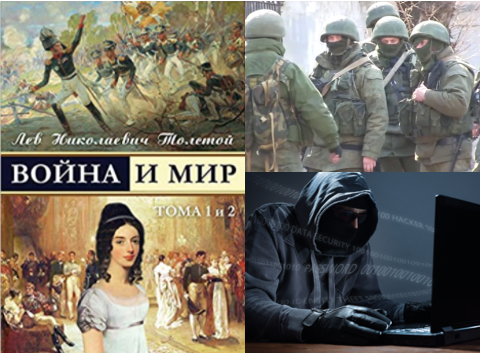The Prime Minister, in his speech to launch the Integrated Review in March 2021, spoke of the UK being ‘better equipped for a more competitive world’. The Review itself is full of the language of a changed and more competitive environment, of the need to move on from traditional frameworks and thinking, and to play the nation’s ‘Global Britain’ role dynamically and on the front foot. We were subsequently told in the open

ing chapter of the Review that: [o]ver the last decade, UK policy has been focused on preserving the post-Cold War ‘rules-based international system’ which has greatly benefited the UK and other nations. Today, however, the international order is more fragmented, characterised by intensifying competition between states over interests, norms and values. A defence of the status quo is no longer sufficient for the decade ahead. To deal with this state of affairs Britain is going to: adapt to a more competitive and fluid international environment; do more to reinforce parts of the international architecture that are under threat; and shape the international order of the future by working with others. Which means that: [i]n the more contested environment of the 2020s, this requires us to be more active in creating a world in which open societies and economies can flourish, shaping the international order of the future.
The bottom line, dear reader, is that we need to understand how we are going to uphold those rules and institutions that serve us and the wider world best, in the interests of mutual harmony, security, stability and prosperity, while working out how to erase from our mindsets the constraining and unhelpful notion of ‘thresholds’, or lines in the sand, that the support of such rules and institutions seems to suggest. The Integrated Review recognises the paradox. The implementors of the policy will need to resolve it.
Strategists (and, indeed, operational artists) seem to agree that two key elements of the enduring nature of their art include: the need to seize, hold and retain the initiative; and the fact that everything you plan or do will be actively opposed by multiple adversaries (and some friends) at every turn. The passages from the Integrated Review quoted above speak absolutely to just such a positive and forward-leaning strategic agenda, and active competition remains a core theme throughout. On page 28 under ‘Context’, for example, we are told to expect: [c]ompetition across multiple spheres. Competition will continue within the conventional military domains of land, sea and air, and will grow in other spheres, including technology, cyberspace and space, further shaping the wider geopolitical environment. Systemic competition will further test the line between peace and war, as malign actors use a wider range of tools – such as economic statecraft, cyber-attacks, disinformation and proxies – to achieve their objectives without open confrontation or conflict. The UK is likely to remain a priority target for such threats. Our ability to deter aggression will be challenged by new techniques and technologies.
The implementors of the policies laid out for Defence will, amongst other things, have to think hard about what terms like ‘competition’, ‘rules’ and ‘thresholds’ really mean (and will and could mean) to us; and, as a vital aspect of this, about what the use of language can tell us about ourselves, and, more worryingly, can tell our opponents about how we think and are thus likely to behave as all sides run the ‘match videos’ on their opposition to try to work out their own game plans. The glib use of profession-centric or doctrinal ‘in’ phrases, labels and buzzwords, without really thinking through or understanding what the use of those words might mean or show, is a bad habit and one to which all professions are prone; and militaries and civil services are no exception. So, pause for a moment to think about the words. ‘Competition’ (event in which persons compete). ‘Compete’ (take part in a contest; strive with or against others). So, what are we striving for? Are we in it to win it? Or are we in a competition not of our choosing, inevitably, whether we like it or not, and all we can do is try to keep up, with no hope of any laurels? What are our choices or opportunities about outcomes and results? What are our prospects in the competition? The word, if one stops to think, before simply trotting it out, suggests a willing participation in an endeavour to overmatch one’s fellow competitors – the IR uses the phrase ‘match fit’ repeatedly, deliberately to reinforce the sporting analogy implicit in the term competition, and the Prime Minister used the phrase in his launch speech. I suppose that the bottom line is: are we competing for advantage or survival? The language of the review and its attendant parliamentary speeches suggest that we intend to compete in a way that finds us constantly in the top tier of the league table of the Premier Division, to the security and prosperity advantage of the national team and its supporters. This suggests to us that we will compete willingly, widely, by design, and with an intent to prosper in the competitive environment. We enter the competition open-eyed, realistic, and with a will to win.
Thus the tone of the IR, I believe quite rightly, is not one of a reluctant opposer of an existential threat – although there are plenty of well-informed and wise commentators who are very clear that we stand in considerable peril. The tone of the IR is rather more positive than that, and suggests a policy direction, a capability set and a doctrinal approach in which Britain would seek to compete not to ‘win’, because it sees this as a constant, never-ending and unwinnable competition, but rather to compete to ‘stay ahead’[1]. The tone suggests a ‘front foot’ approach. It suggests that Britain will be active and forward-leaning, it will seek to influence and shape, it will be dynamic, and all of its playing pieces will be integrated in their approach – so every British player in this event will be playing to the same carefully-thought-through, thoroughly-coached game plan.
For the foreign policy and defence aspects of the IR there is a very clear mandate to support and strengthen those ‘rules’ of the game that we recognise as being of moral and strategic value. The importance and utility of NATO and the UN continue to sit front and centre of defence and foreign policies. There is also, explicitly and implicitly, repeated reference to resetting the rules elsewhere and finding new and innovative ways to influence global structures, events and outcomes to the nation’s advantage; the IR tells us, for example, that we intend to: seek to reinforce and renew existing pillars of the international order – such as the UN and the global trading system – and to establish norms in the future frontiers of cyberspace, emerging technology, data and space. Thus, regardless of our new operating concepts, NATO remains at the centre of our Defence policy, and provides us with the clarity of Article V; and the UN remains one of the ‘existing pillars of the international order’ that we will seek to renew and strengthen, providing us with the clarity of Article 51 of its charter.
And this clarity may be useful to us, and a helpful way of framing our own policies, capabilities and doctrines. Defence, and wider Whitehall and defence-related academia, are increasingly using the terms ‘Threshold’ and ‘Sub-Threshold’ to describe the (seemingly) clearly-divided aspects of our participation in this constant competition. When one questions what these terms actually mean, interlocutors will most usually default to reference to Article V and Article 51 and speak of ‘warfighting’ above an apparent threshold suggested by these norms and ‘operating’ below those thresholds. I have typically, over the last few months, heard statements such as: “we need to be able to operate Sub-Threshold and preserve enough capability to be a credible deterrent and, if that fails, to war-fight above the Threshold; but we believe that if we do have to operate above the Threshold we will have failed in our policy intent”. We all know what we mean when we say this. It makes absolute sense. And seeking terms to conveniently label or pigeonhole our thoughts has always been endemic in military thinking and debate: small wars, limited wars, out-of-area operations, operations-other-than-war, warfighting and non-warfighting – they all struggle to capture the same idea in a neat and all-agreed way. The terms are as numerous and nuanced as the twists and turns of the global strategic kaleidoscope. We write the terms into our Defence and Security debate, and thus into our policies and our doctrine. And our opponents can, and do, read our policy statements and doctrine with as much attention as we do (or, to trot out Erwin Rommel’s now hackneyed assertion, probably with rather more attention than we do).
And this isn’t new. Regardless of whether one fully embraces Clausewitz’s characterisation of the nature of war – those constant things and themes that make war ‘war’, as opposed to something less than or other than ‘war’ – it is fair to say that a western mindset considers there to be a threshold between war and peace above which states may act in a certain way, and below which they may not. I find it increasingly ironic that the book War and Peace was written by a Russian. Russia (neither the modern version thereof nor any of its predecessors) simply does not recognise this clear distinction. The most casual of observers of Russian foreign policy over the last two decades will have noticed that Russia does all sorts of things that are aggressively unamicable to the interests of its competitors. As it did during the Cold War. Russia does not recognise a clear constraining ‘threshold’ delineated by Article V or, despite its seat on the Security Council, the constraints of the United Nations’ Article 51, in quite the same way that we do. Nor does China. So, to continue to use competitive sport as an analogy, if we keep using the terms ‘Threshold’ and ‘Sub-Threshold’ (and I continue to use the irritating capitalisation, as if these things were commonly accepted proper nouns, deliberately!) and act in our competitive game of international relations accordingly, it would like expecting to play a game of international rugby in which the British and Irish Lions are held to the offside rule, but their Russian or Chinese opponents are not. But it’s much worse than that. Before the match we keep telling our opposing coach that we know that they will not play by the offside rule, but that we will. Simply by talking about ‘Threshold’ and ‘Sub-Threshold’ so much we are not only continually demonstrating a mindset for our opponents to understand, but are reminding them, repeatedly, that we will impose constraints upon ourselves that they will not.
The late and much-lamented Sir Terry Pratchett had a view on those who stick to the rules when their opponents do not see such a need. In his Discworld novel The Fifth Elephant we find a very wise observation: “The Marquis of Fantailler got into many fights in his youth, most of them as a result of being known as the Marquis of Fantailler, and wrote a set of rules for which he termed “the noble art of fisticuffs” which mostly consisted of a list of places where people weren’t allowed to hit him. Many people were impressed with his work and later stood with noble chest outthrust and fists balled in a spirit of manly aggression against people who hadn’t read the Marquis’s book but did know how to knock people senseless with a chair. The last words of a surprisingly large number of people were “Stuff the bloody Marquis of Fantailler _______”.
In the IR we tell ourselves, and our opponents, how we are going to compete with them. On Page 44: The UK respects the people, culture and history of Russia. However, until relations with its government improve, we will actively deter and defend against the full spectrum of threats emanating from Russia. Through NATO, we will ensure a united Western response, combining our military, diplomatic and intelligence assets in support of collective security. We will uphold international rules and norms [my emphasis] and hold Russia to account for breaches of these, working with our international partners, as we did after the Salisbury attack. We will also support others in the Eastern European neighbourhood and beyond to build their resilience to state threats. This includes Ukraine, where we will continue to build the capacity of its armed forces. And we acknowledge the need to be less Euro-centric and take a global approach, where necessary with an Asia-Indo-Pacific tilt. China’s growing international stature is by far the most significant geopolitical factor in the world today, with major implications for British values and interests and for the structure and shape of the international order. The fact that China is an authoritarian state, with different values to ours, presents challenges for the UK and our allies. Absolutely! And we acknowledge and understand therefore that they will be playing by a different set of values and rules. And we are clear that when we, or those who share our interests or values, or the wider world at large, feel that marks have been over-stepped or thresholds crossed we are prepared to act: [w]e will not hesitate to stand up for our values and our interests where they are threatened, or when China acts in breach of existing agreements. And in this sits the really tough paradox at the heart of the security challenge with which the IR has had to wrestle. How do we compete with those who are prepared to compete without our constraints? How do we penalise the behaviour of those who do not play by our rules (especially of they have a seat and a veto on the penalisation committee!)?
On page 69 we state clearly that: We will take a more robust approach in response to the deteriorating global security environment, adapting to systemic competition and a wider range of state and nonstate threats enabled by technology. In doing so, we must improve our ability to detect, disrupt, defend against and deter the threats we face in the physical world and in cyberspace. These may be state threats above and below the traditional threshold of war [my emphasis], transnational security challenges such as terrorism and serious and organised crime (SOC), or a combination of these. We will demonstrate that we are able and willing to respond when our citizens and interests are targeted, including with force if necessary. And then on page 73 we state that: We must update our deterrence posture to respond to the growth in state competition below the threshold of war under international law [my emphasis]. As set out in the 2020 Integrated Operating Concept, this means being able to move seamlessly between ‘operating’ and ‘warfighting’. This will require a force structure that principally deters through ‘persistent engagement’ below the threshold of war, while remaining prepared for warfighting when necessary. All activity, including that which has previously been seen as routine, has the potential to constrain or deter adversaries. Exactly so – that is absolutely the challenge that faces us. Importantly, though, this cannot just be about having and using a capability or capabilities, this will be about mindsets too. Thus, constructing not just a Defence capability, but also a national mindset (which includes having a beneficial mindset in an otherwise enquiring and questioning independent media and a sceptical polity) that enables that capability to be used sits at the core of the implementers’ task. And in that task, continual stressing of ‘Threshold Thinking’ will be a hindrance, not a help.
So here is the bottom line: if we are going to compete for advantage in this constant competition we need to resolve the paradox of reinforcing and propping up a set of rules (which we presumably will then obey ourselves) and thus explaining clearly to our opponents how we will play the game, without finding ourselves outplayed by those who do not seem to feel the need to follow those same rules. Perhaps we are doing that already, and are so good at it that we are double-bluffing our opponents and playing a game of deep disinformation. Perhaps our approach is so clever that we are telling our opponents in this street fight that we are intending to follow the Marquis of Fantailler’s rules while knowing that we have a cudgel up our sleeve, a friend in the shadows, and an intent, if we think we can get away with it, to check that we are unobserved and to strike a Fantailler pose while rapidly (to use another of Sir Terry’s favoured expressions) “kicking our opponents inna fork”. I hope so. If we are not, however, then those who talk glibly of ‘Threshold’, ‘Sub-Threshold’ and rules may find themselves competing at an unwinnable disadvantage.
In short, at what stage in this competition are we going to say “Stuff the Marquis of Bloody Fantailler_____!” Not, I hope, like Terry Pratchett’s losers, as we lie bemused and bleeding in the gutter.
[1] For those who wish to explore the notion of ‘winning’ in a rather deeper way, we thoroughly recommend the Casemate/CHACR publication Winning Wars; Ed Strohn; 2020; ISBN: 978-1-95271-500-6





